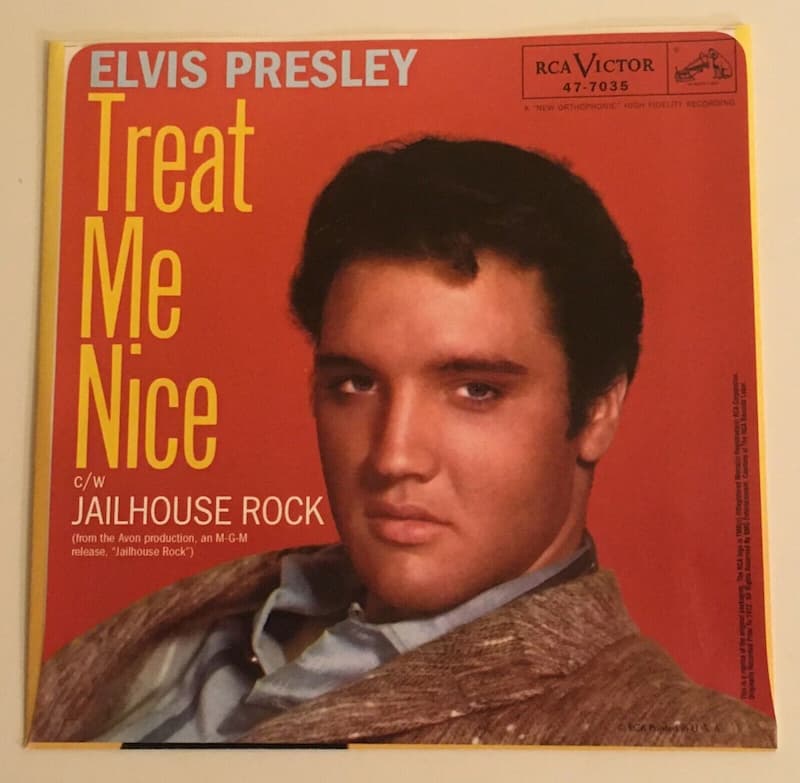
About The Song
Elvis Presley’s “Treat Me Nice” (1957). Buckle up, because we’re diving headfirst into the heart of the King’s early reign. This song, released at the height of Elvis mania, isn’t just a catchy tune; it’s a microcosm of the musical and cultural phenomenon Elvis Presley ignited.
“Treat Me Nice” belongs to a specific breed of Elvis song. It’s a rockabilly number, a genre Elvis helped popularize. Rockabilly blended the raw energy of rock and roll with the playful rhythms and twang of country music. I
n “Treat Me Nice,” that translates to a driving backbeat, a prominent slap bass line, and of course, Elvis’s unmistakable vocals. Listen closely, and you can practically hear the blue suede shoes shuffling across the stage.
But “Treat Me Nice” is more than just a sonic gumbo. It’s a glimpse into the youthful rebellion simmering beneath the surface of 1950s America. The lyrics, penned by the songwriting duo Jerry Leiber and Mike Stoller, are simple yet potent.
Elvis sings of a love that’s conditional, a playful defiance wrapped in a sweet melody. “You know I’ll be your slave/ If you ask me to/ But if you don’t behave/ I’ll walk right out on you”. This wasn’t the kind of sentiment teenagers were used to hearing crooned by their idols. It spoke to a new generation, one that craved something more than passive conformity.
Then there’s Elvis himself. His delivery in “Treat Me Nice” is pure charisma. He effortlessly switches between a smooth, almost pleading tone and a playful growl. It’s a vocal performance that both seduced and challenged, perfectly mirroring the song’s message.
Of course, we can’t ignore the cultural impact. “Treat Me Nice” was featured prominently in the movie Jailhouse Rock, another cornerstone of Elvis’s film career. Seeing him strut and gyrate on the big screen, belting out this song, further solidified his image as a musical and cultural revolutionary.
So, “Treat Me Nice” is more than just a catchy tune. It’s a time capsule, a snapshot of a cultural phenomenon in its infancy. It’s a testament to the power of Elvis Presley’s voice, his charisma, and his undeniable influence on music and society.
When you hit play, you’re not just listening to a song; you’re stepping back into a simpler time, a time when a young man with a sneer and a swagger could change the world with a single “Treat Me Nice.”